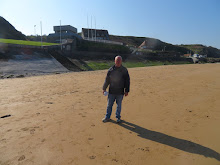I read only ten books last year, my lowest total in 35 years. But on the positive side, I started reading classical literature after decades of reading mostly history books. Here's how I would rank the half-score of books I read, in order of their importance to me.
- Great Expectations by Charles Dickens, published in serial form around 1861.
This is a fabulous book, all about Pip's coming of age and his ultimate change from an ungrateful and foppish dilettante into a worthwhile man. Who could forget the aging yet frozen-in-time jilted bride, or the beautiful but cold and heartless Estella. And there are two endings to choose from.
- Wuthering Heights by Emily Bronte, published in 1847.
The perfect love triangle, also a sort of ghost story, set on the unforgiving Scottish moors. Heathcliff and Catherine are unforgettable and inseparable in both life and death.
- The Age of Innocence by Edith Wharton, winner of the 1921 Pulitzer Prize for literature.
The novel depicts New York City's upper-crust society in the 1870s, exposing its sycophantic, seething and unseemly nature, plus it is a great revenge piece. Wharton's well-deserved prize made her the first female recipient.
- Sweet Thursday by John Steinbeck, published in 1954.
Cannery Row's sequel, this follow-up novel is a sweet rendition of the unforgettable new girl in town, Thursday.
- The Missing of the Somme by Jeffrey Dyer, published in 1994.
A haunting evocation of the somber and reflective memories evinced by the many monuments and memorials populating the WWI battlefield at the Somme River, where in 1916 the flower of English manhood was slaughtered as it walked in straight lines into German guns. An ethereal travel-guide.
- The Apostle: A Life of Paul by John Pollack written in 1972.
Everybody should know more about the life of St. Paul than the abridged version that is taught in bible class. After all, he is at the center of Christian doctrine.
- The Wehrmacht Retreats: Fighting a Lost War, 1943 by Robert Citino, published in 2012.
The German will to carry on their barbaric war after it was obviously and irretrievably lost by 1943, and the tenacity and skill with which they did so, are astonishing.
- Winston's War: Churchill 1940-1945 by Max Hastings, published in 2009.
This was a great man. Utilizing his great oratory, he single-handedly propped up the British will and ability to resist.
- Hitler's War by Edwin Hoyt, published in 1988.
The Germans lost the war in this book too.
- Quest for Decisive Victory: From Stalemate to Blitzkrieg in Europe, 1899-1940 by Robert Citino, published in 2002.
Most people don't know anything about the series of post WWI Balkan Wars. These conflicts were the petri dish where the form of war known as blitzkrieg, so successfully used by the Germans to conquer most of Europe by 1942, was developed.

No comments:
Post a Comment